About BestSelf Behavioral Health PROS
BestSelf Behavioral Health in Buffalo, New York is a place where you can find compassionate support if you’re battling substance use disorders or mental health challenges. We like the way their providers and care teams prioritize recovery with personalized attention and a special dedication to your progress.
They accept various forms of payment here including Medicaid and Medicare as well as private health insurance, military insurance like Tricare, and self payment. They also offer sliding fee scales based on income and other factors. You can choose the payment option that works best for you and your circumstances.
BestSelf has a variety of locations and programs, but this location on Franklin Street primarily focuses on their Personalized Recovery Oriented Services program or PROS for addiction recovery.
Outpatient Medications for Opioid Addiction
Their outpatient services include outpatient mental health and substance abuse treatment. In particular, their medication assisted treatment (MAT) may be a good option for you if you have an opioid use disorder. The medications used in the MAT here are buprenorphine and naltrexone, which ease cravings and withdrawal symptoms to help you avoid a relapse.
This treatment center also has a variety of specialized programs. These include services for adolescents under 17, integrated primary care clinics, and vocational services.
Personalized Services in Buffalo
Maybe you’re needing support for your mental health. Or maybe you’re wanting to become more independent. If this speaks to you, then BestSelf Behavioral Health’s PROS program may be a useful option to consider. Through PROS, you’ll get to choose workshops and classes that are designed to help you with things such as job skills training and housing assistance. We really like the PROS option because you don’t even have to be experiencing a crisis to qualify for this and it’s set up to enhance your wellness long term meaning you’ll take the skills with you throughout the rest of your life.
Linkage to Residential Rehab for Pregnant or Parenting Moms
Because this facility is in the BestSelf network, they’ll also be able to connect you to other BestSelf programs that may suit your needs. One that especially stands out is their residential program for pregnant women and women with young children.
The residential facilities here are designated for women and their children. The facility has cozy common areas that are a perfect setting for you to engage with supportive staff and peers. You can also access beds for your children, which makes this a unique option for moms.
Latest Reviews
Rehab Score
Gallery
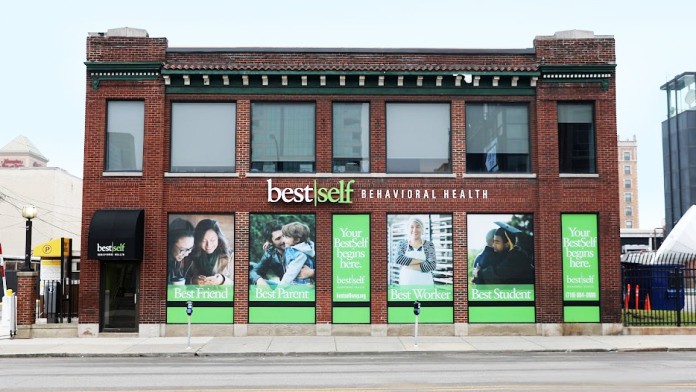
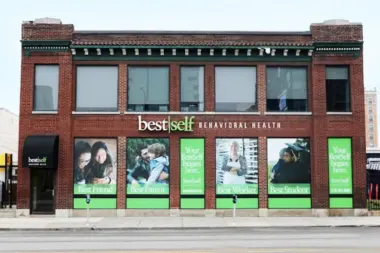
Other Forms of Payment
Medicaid is a state based program that helps lower-income individuals and families pay for healthcare. Medicaid covers addiction treatment so those enrolled can use their coverage to pay for rehab. When a program accepts Medicaid the client often pays very little or nothing out of their own pocket.
Self-pay involves paying for treatment out of your own pocket. You can use savings or credit, get a personal loan, or receive help from family and friends to fund your treatment. If you don't have insurance or your insurance plan doesn't cover a specific program, self-pay can help ensure you still get the care you need.
Medicare is a federal program that provides health insurance for those 65 and older. It also serves people under 65 with chronic and disabling health challenges. To use Medicare for addiction treatment you need to find a program that accepts Medicare and is in network with your plan. Out of pocket costs and preauthorization requirements vary, so always check with your provider.
Addiction Treatments
Treatments
Many of those suffering from addiction also suffer from mental or emotional illnesses like schizophrenia, bipolar disorder, depression, or anxiety disorders. Rehab and other substance abuse facilities treating those with a dual diagnosis or co-occurring disorder administer psychiatric treatment to address the person's mental health issue in addition to drug and alcohol rehabilitation.
Mental health rehabs focus on helping individuals recover from mental illnesses like bipolar disorder, clinical depression, anxiety disorders, schizophrenia, and more. Mental health professionals at these facilities are trained to understand and treat mental health issues, both in individual and group settings.
Programs
Adult rehab programs include therapies tailored to each client's specific needs, goals, and recovery progress. They are tailored to the specific challenges adult clients may face, including family and work pressures and commitments. From inpatient and residential treatment to various levels of outpatient services, there are many options available. Some facilities also help adults work through co-occurring conditions, like anxiety, that can accompany addiction.
Recovery is most successful when clients feel accepted and validated by their peers and treatment providers. Facilities that offer LGBTQ-inclusive programming are committed to creating a safe space where everyone can grow and recover without fear of judgment or discrimination. They will have dedicated policies in place to create a safe and supportive environment that fosters free expression.
Young adulthood can be an exciting, yet difficult, time of transition. Individuals in their late teens to mid-20s face unique stressors related to school, jobs, families, and social circles, which can lead to a rise in substance use. Rehab centers with dedicated young adult programs will include activities and amenities that cater to this age group, with an emphasis on specialized counseling, peer socialization, and ongoing aftercare.
Clinical Services
Cognitive Behavioral Therapy (CBT) is a therapy modality that focuses on the relationship between one's thoughts, feelings, and behaviors. It is used to establish and allow for healthy responses to thoughts and feelings (instead of unhealthy responses, like using drugs or alcohol). CBT has been proven effective for recovering addicts of all kinds, and is used to strengthen a patient's own self-awareness and ability to self-regulate. CBT allows individuals to monitor their own emotional state, become more adept at communicating with others, and manage stress without needing to engage in substance abuse.
Dialectical Behavior Therapy (DBT) is a modified form of Cognitive Behavioral Therapy (CBT), a treatment designed to help people understand and ultimately affect the relationship between their thoughts, feelings, and behaviors. DBT is often used for individuals who struggle with self-harm behaviors, such as self-mutilation (cutting) and suicidal thoughts, urges, or attempts. It has been proven clinically effective for those who struggle with out-of-control emotions and mental health illnesses like Borderline Personality Disorder.
Experiential therapy is a form of therapy in which clients are encouraged to surface and work through subconscious issues by engaging in real-time experiences. Experiential therapy departs from traditional talk therapy by involving the body, and having clients engage in activities, movements, and physical and emotional expression. This can involve role-play or using props (which can include other people). Experiential therapy can help people process trauma, memories, and emotion quickly, deeply, and in a lasting fashion, leading to substantial and impactful healing.
Research clearly demonstrates that recovery is far more successful and sustainable when loved ones like family members participate in rehab and substance abuse treatment. Genetic factors may be at play when it comes to drug and alcohol addiction, as well as mental health issues. Family dynamics often play a critical role in addiction triggers, and if properly educated, family members can be a strong source of support when it comes to rehabilitation.
Group therapy is any therapeutic work that happens in a group (not one-on-one). There are a number of different group therapy modalities, including support groups, experiential therapy, psycho-education, and more. Group therapy involves treatment as well as processing interaction between group members.
In individual therapy, a patient meets one-on-one with a trained psychologist or counselor. Therapy is a pivotal part of effective substance abuse treatment, as it often covers root causes of addiction, including challenges faced by the patient in their social, family, and work/school life.
Nutrition therapy, aka medical nutrition therapy (MNT), is a way of treating physical, emotional, and medical conditions through diet. Specific dietary plans are designed by professional nutritionists or registered dietitians, and patients follow them in order to positively affect their physical and mental health.
Trauma therapy addresses traumatic incidents from a client's past that are likely affecting their present-day experience. Trauma is often one of the primary triggers and potential causes of addiction, and can stem from child sexual abuse, domestic violence, having a parent with a mental illness, losing one or both parents at a young age, teenage or adult sexual assault, or any number of other factors. The purpose of trauma therapy is to allow a patient to process trauma and move through and past it, with the help of trained and compassionate mental health professionals.
Staff
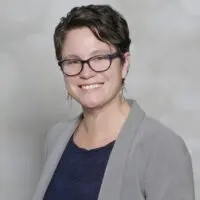
Elizabeth Woike, LCSW-R
President & CEO
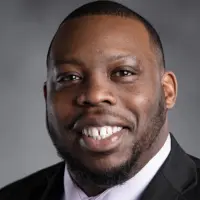
DeWan Stroud
Chief People Officer
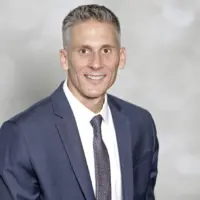
Kevin E. Wiese, MS, CHCIO, CPHIMS
CIO
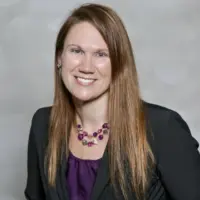
Margery L. Stanton, LMHC
Chief Program & Services Officer
Contact Information
254 Franklin street
Buffalo, NY 14202